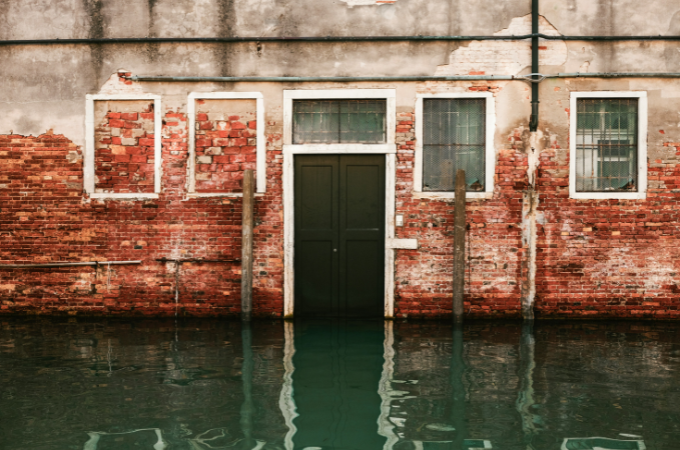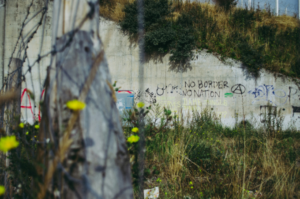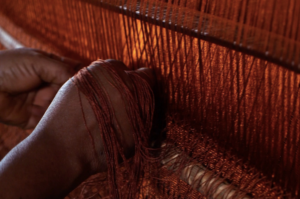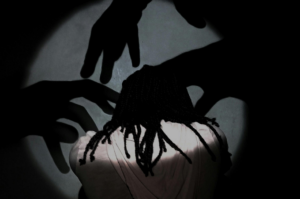
Your stomach lurches at the scraping sound of boxes rolled on tiles. The screeching of cars as they drive out. Their flashlight almost blinding. You’d rather not see, but you hear them nonetheless, they boast of their most recent addition. It is the end of the school’s academic session. There are cars everywhere. Boxes. Everyone is going home. Your stomach lurches often. It is your trauma trigger.
You braced yourself for the pain. You tell yourself that you are prepared. That anticipation makes pain less painful. And knowledge numbs it. But you are a broken instrument trying to make good music. You feel the first stab of pain when the school begins to get empty. And you make your way to the staff’s lodge, the house of your hostel matron. You will feel the second stab when the gossip begins. Your homelessness its subject.
“Do you know she doesn’t travel for the holidays?”
“She spends it with the matron. No one comes for her.”
“Poor girl,” they whisper. She must have no home.
You laugh hard the first time you hear it. How can you be homeless? You, who owned your first house at 8. Even now, you feel another bout of laughter at the bottom of your throat. You let it go as you wave your final goodbyes. They are right. But you can’t let them know. So, you laugh hard until tears begin to roll down – again. You let it. There is a dam in your heart. The heady rush of water breaking free. You flood.
Soon the school is empty. You have been left behind. It’s not your first time. The first time you were 8, tucked beside your mother in the backseat. Her body, a warm blanket of protection. Before it grew stiff and cold, it saved you from the solid impact of the truck. It would be the last protection you have against the outside world. So, you cling hard to this cold body – the only warmth you have ever known. Weeping and fussing as they tear you away.
The second time you are left behind will be when the new woman sashays into the house. Your house. She walks into the last gift your mother has left you like it was hers from the beginning. And the house has only just found its true owner. Her perfume trails after her. A heavy foreboding. It will be the first time you hear the screeches of the rolling boxes. Your mother’s boxes are moved to make space for hers. Yours for her son’s. As usual, you stay firmly where you are. It’s your father that does the leaving. He leaves each time your step mother pulls out a claw. “To breed her femininity,” she painstakingly explains. “A wife-making session. How else will she take care of her home?” You think you hear bleed. But it makes no difference. Soon, there was no need for the maids.
Your father’s defence of this woman is lost on you. “You ought to be grateful to her,” he tells you. “Look how much she looks out for you even though you are not hers. Look how much she cares.”
You are angry. His words, a trigger that fires you up. “What I see,” you spit, “is how less you care.” He pauses. Like your words sting. Slowly, he shakes his head. And closes his eye to this new pain.
When he looks at you again, it’s almost like you don’t recognize him. “She is right,” he tells you. “You are spoilt. And need to have more sessions.”
You remember that day clearly, it’s the first time you cried after your mother’s death. You want to shake him. Shake the senses in. To bring back the father of your childhood. The one your mother loved so hard and sang to you about. She did not mind that the roles were reversed in the family. That she made the money while he made the bed. Now he looked like the stories your mother told you. A folklore.
You feel the overwhelming urge to push him and his new woman out of your house. To erase their presence. These dark spots that have blocked your sunlight. You are desperate. You want to go out to the sun. To feel warmth again. But how can you leave your own house? With all the memories it has of your mother. So, you stay. Your shadows trail after you. You like to imagine your mother’s spirit lingering somewhere. You talk to it often. But that was then. Before you became a woman.
The night your wife-making session began, you flailed your hands wildly. And forced your muffled mouth to scream louder. It betrays you. He tells you that resisting will only make it harder. And harder it was. Nothing in your wife-making school prepared you for this pain that has stolen over you. You scream to your mother’s spirit for help. It stays silent. He feels your despair in the yielding of your body. He smiles his victory.
You spend the rest of the night in the bathtub trying hard to wash away this shame. You blame everyone. Your father, if he had not married this woman. Your stepmother, if she began a husband-making session on her son. If only she didn’t excuse all his actions. If only your father excused yours. You spare a little blame for your mother, if she had not left you. How could she had closed her eyes so quickly? Why did she watch silently? You will wonder if life will ever be the same. If you will ever take delight in folklores again.
Your mind wanders. You wonder who you hate most. The culprit, this stepbrother that has forced himself on you with relish. Or the enablers: your stepmother who shone him a torchlight. Your father who turned his back and walked away. Your mind is a jamboree of thoughts. There is a dam in your heart. This is the first time it broke loose. The heady rush of waters. You flood.
You stayed in the bathtub for a long time. Till there was no difference between the metallic taste of the tap water and your salty tears. Yet, it is difficult to wash the pain away. The shame clings hard to you like a second clothing. It is under your nails, where you have clawed his flesh.
The next day, you insist on being a boarder in school. You pack your things. Everything you own squashed into a tight space. You feel your shame pack with you, embedding itself into the crevices of your box, the folds of your cloth. It trails after you. Your mother’s spirit watching you – silently. You bid it farewell. And swear never to step foot into the house again.
The hostel matron’s place is locked when you arrive. You sit out the rest of the day on the veranda. Waiting. Watching. You take in your environment. The scraping of wheels against the floor. The screeching of tyres. The excitement in the air. Your shame hanging over you. The titbits beneath your nails. You sigh.
At least, you tell yourself, he had the good sense not to tell. And you, the grace to hide. No one can know of your dirty linens. This shame is yours – and yours alone – to bear. You can wallow in it until you reek. Until you have to spread them. Even then, you are determined to spread it yourself – you think it more dignifying. Hopefully, you would have outgrown them by then.
Until then, you nurse your broken heart. It doesn’t stop bleeding. And your dam doesn’t stop breaking. It makes you lightheaded. You hurt. You flood.
Photo by Cristina Gottardi on Unsplash










COMMENTS -
Reader Interactions